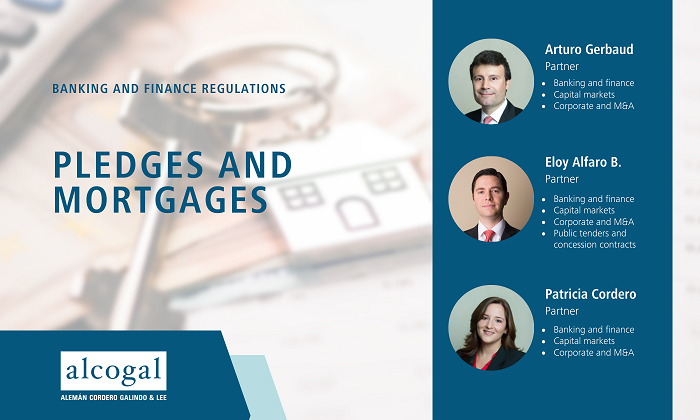A pledge is a type of real guarantee which may be given over all kinds of movable assets. A pledge has to be constituted with the same formality as the agreement setting out the obligations it guarantees. However, it is essential that the pledge asset is delivered to the creditor or a third party as depository for its protection. Intangibles such as credits and rights are considered movable assets under Panamanian law and can be the subject of a pledge if they are individually identifiable. In the case of credits represented by negotiable instruments, these must be endorsed in pledge and delivered. This also applies to shares in companies. In general terms, the available structures for encumbering the shares of a Panamanian company would be to constitute either a pledge (under Panama law or the law of another jurisdiction) or a mortgage over the shares. If the shares are dematerialised and deposited in an investment account, the investment account could be pledged.
Some practical considerations in evaluating the convenience of a pledge over a mortgage are that pledge agreements are usually executed in a private document and do not have to be registered, thus making them more time and cost-efficient. Mortgage agreements must be granted in a public deed and registered in the Public Registry of Panama. Furthermore, the mortgage structure and process also implies that:
- a summary of the principal obligation (i.e., the obligation guaranteed by the mortgage) must be included in the public deed which contains the mortgage;
- the signatories of the mortgage must be physically located in Panama, as they must appear before the notary public;
- the mortgage and its related documents (e.g., powers of attorney or corporate authorizations) must be issued in Spanish or immediately translated by an authorized Panamanian public translator; furthermore, any documents executed abroad must also be duly apostilled at the beginning, to be incorporated into the public deed;
- the mortgage must be registered in the Public Registry of Panama, which entails paying registration fees based on the secured amount under the mortgage agreement, using the following formula: USD42 for the first USD20,000 and USD30 for each additional USD10,000 or fraction thereof; furthermore, the public deed containing the mortgage agreement is subject to stamp tax at a rate of USD8 per page;
- registrations in the Public Registry of Panama are of public record which, in practical terms, means that the information pertaining to the principal obligation, as well as that of each holder of a mortgaged share, is publicly known (publishing the information of a company’s shareholders is not standard local practice, given that corporations in Panama are anonymous (sociedades anónimas) and the identities of their shareholders are not a matter of public record); and
- any changes or amendments to the mortgage agreement must also be granted in public deed and registered in the Public Registry.
For a pledge agreement to be perfected, the pledge assets (the shares of the Panamanian company) must remain outside the control of the pledgor (the custodian can be any agreed-upon third party including, but not limited to, the lender) while, under a mortgage structure, the mortgaged assets usually remain under the control of the mortgagor.
Learn more about Judicial or extrajudicial execution of a pledge and of a mortgage in our Banking & Finance Guide prepared by Partners Arturo Gerbaud, Eloy Alfaro B., and Senior Associate Patricia Cordero – Originally published by Chambers & Partners. https://practiceguides.chambers.com/practice-guides/banking-finance-2021/panama
